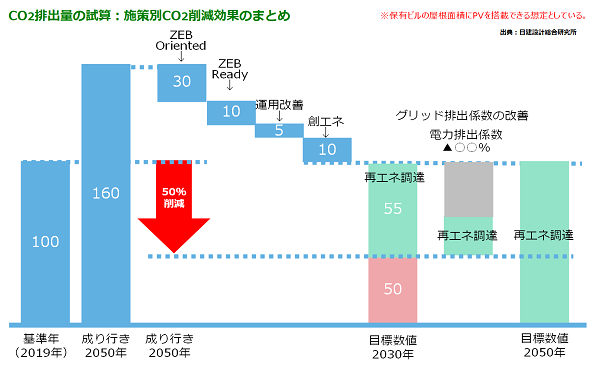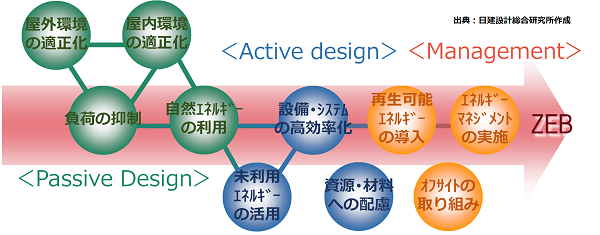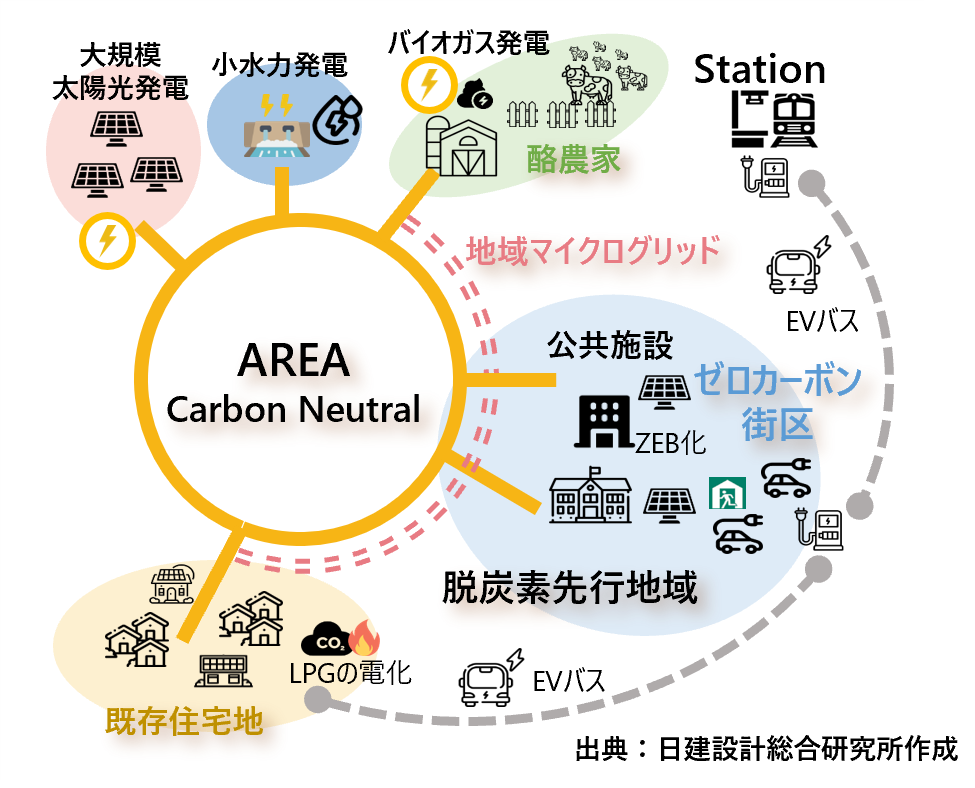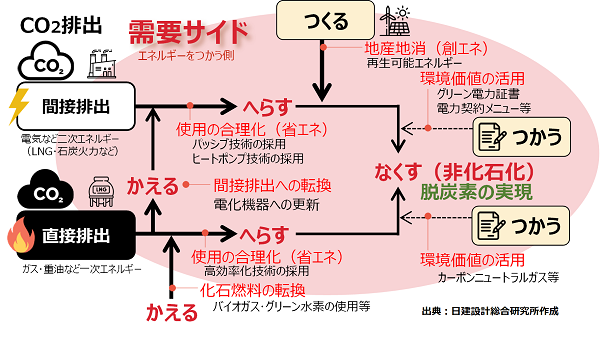
Overview
As initiatives to become carbon neutral accelerate on a global level, the importance of efforts to help reduce greenhouse gas emissions is escalating in Japan as well, from national and local governments to companies in various industries (including not only the company itself but its business partners).
At NSRI, we utilize our expertise and extensive experience in supporting activities such as the analysis and evaluation of current conditions, formulation of plans and the effects of measures taken, and verifying performances based on data, to provide support for effective actions that contribute to carbon neutrality.
At NSRI, we utilize our expertise and extensive experience in supporting activities such as the analysis and evaluation of current conditions, formulation of plans and the effects of measures taken, and verifying performances based on data, to provide support for effective actions that contribute to carbon neutrality.
Features and Approaches
Our strength is consulting that utilizes a combination of various data according to the study objectives of each stage, so that the designed plans, analyses and evaluations lead to effective measures. For multiple facilities owned by the national government, local governments, private companies, and other organizations, we identify buildings that should be prioritized for upgrades from the energy consumption trends of the facility as a whole, and from economic and environmental perspectives, we support the introduction of applicable energy-saving and energy-creation technologies. Energy savings over time from a medium-to long-term perspective are also estimated for the provision of a wide range of support, which includes assessing the feasibility of achieving future targets, formulating roadmaps, and formulating standards and guidelines for facilities to be built such as ZEBs and ZEHs. In addition, by utilizing our expertise on both the supply and demand side, such as procurement of electric power, where deregulation is progressing, support is also provided for studies on carbon neutrality on a city block/area scale and area energy management (e.g., demand response) utilizing urban data.
Service Details 1
Support for formulation of a roadmap to carbon neutrality

As a strategic response for carbon neutrality, an increasing number of clients are considering approaches such as the formulation of roadmaps. While using our clients' real data to all possible extent, and combining this when appropriate with actual energy use surveys and the knowledge and data our company possesses, support is provided for identifying buildings to be prioritized for measures through quadrant classification, and for future estimates based on renovation or reconstruction plans. Grasping the difference between the target figures and reduction estimates could also facilitate investment decisions including the amount of carbon credits to procure.
Service Details 2
Support for the formulation of guidelines

Regarding plans for renovation or reconstruction of client assets, we provide support for the formulation of overall guidelines and guidelines for design and planning, including measures to strengthen compliance with the Building Energy Efficiency Act and for the realization of ZEBs and ZEHs. Our company's strengths lie in our ability to propose specific measures based on actual facility use and the analysis and evaluation of their data, and to examine effective details and content using program analysis, energy simulations, and other technologies.
Service Details 3
Support for the formulation of area energy plans

With the spread of renewable energy, efforts for the local production and consumption of power have been increasing not only in individual buildings, but also within areas through power interchange. Recently, power supply and procurement methods (including power markets), such as PPA businesses, demand response, and regional microgrids, are becoming more diverse and complex. We support our clients' formulation of proper energy plans based on the actual energy usage of their assets, and the implementation status of roadmaps.
Service Details 4
Support for carbon management

Greenhouse gas emissions from buildings and communities are divided into direct emissions, such as from the use of combustion equipment, and indirect emissions from secondary energy sources such as electricity. From both of these perspectives, we support the achievement of carbon neutrality through the reduction of emissions themselves utilizing "reduction/replacement" measures for greater efficiency, proper operations and improved maintenance, as well as combining these with "creation/elimination" measures for renewable energy and environmental value.
Other support
Support is provided by establishing a flexible system for studying how to meet the various needs of our clients. This includes studies on utilizing various subsidy systems, surveys on the latest technology trends, studies on the utilization of hydrogen, studies on the formulation of standards for decisions on the appropriate renewal of building facilities, and surveys on actual usage conditions through short-term measurements.